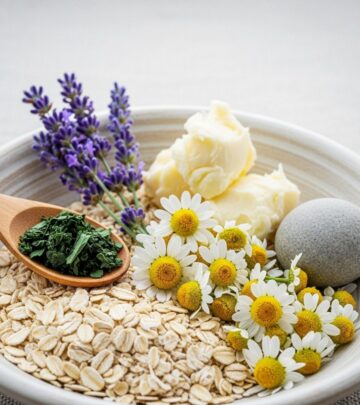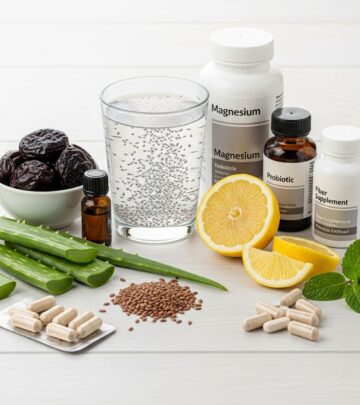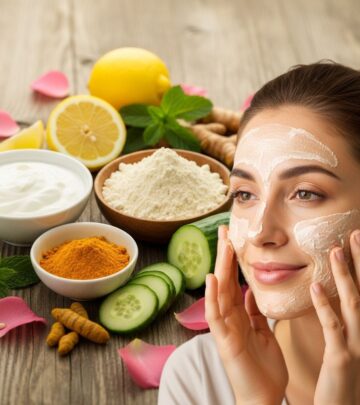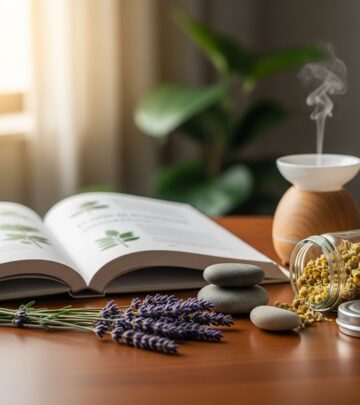Effective Home Remedies to Lower High Cholesterol Naturally
Discover natural, science-backed home remedies and lifestyle changes to manage high cholesterol and protect your heart health.
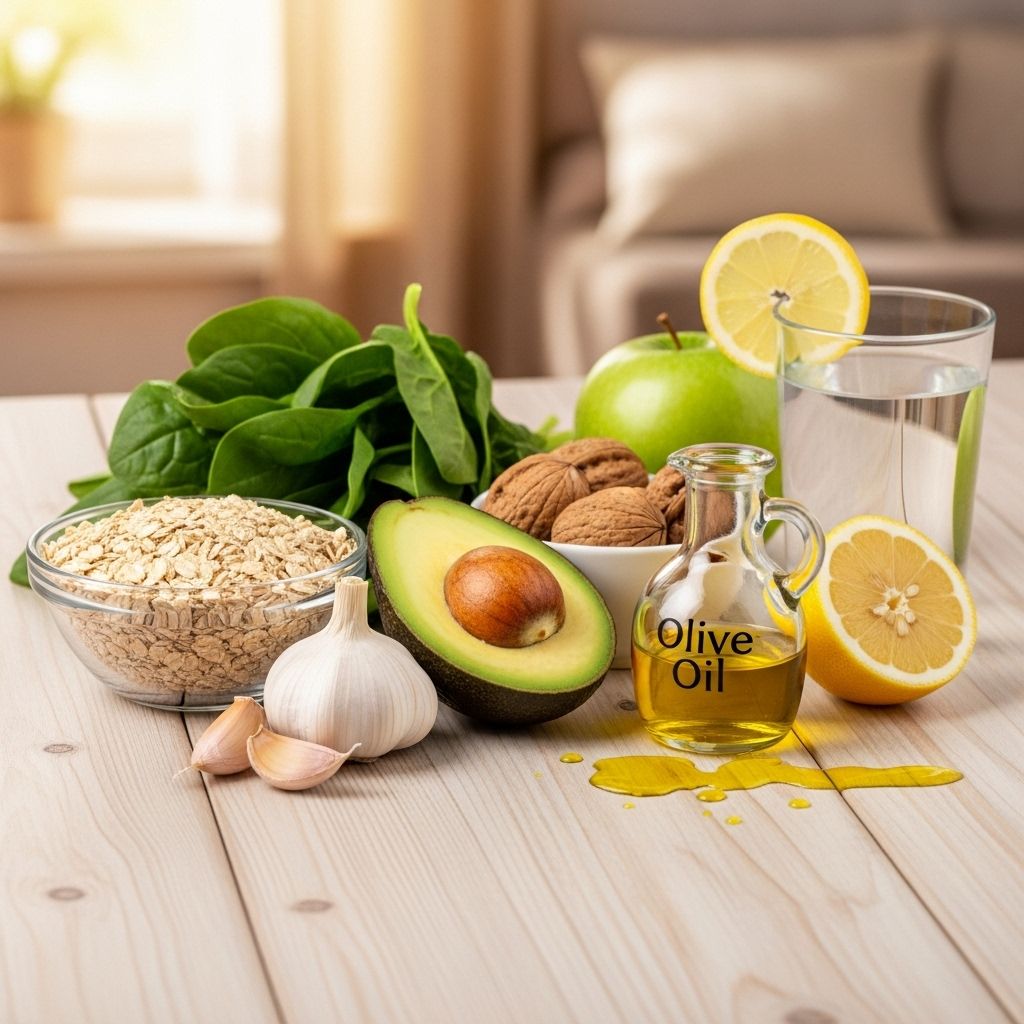
High cholesterol is a common health concern that, if left unmanaged, increases the risk of heart disease and stroke. While medication is sometimes necessary, several home remedies, dietary adjustments, and lifestyle interventions can help manage cholesterol levels naturally. This article explores safe, effective ways to reduce cholesterol, based on current research and expert recommendations.
Understanding Cholesterol: Why It Matters
Cholesterol is a waxy, fatty substance present in every cell of the body. It plays an essential role in various functions, including making hormones, vitamin D, and digestive fluids. However, when cholesterol, particularly low-density lipoprotein (LDL or ‘bad’ cholesterol), builds up in blood vessels, it can harden and form plaques, leading to narrowed or blocked arteries. This raises the risk of heart attacks and strokes.
Cholesterol levels are influenced by genetics, diet, physical activity, and other lifestyle factors. Therefore, adopting the right habits at home can make a significant positive difference.
Top Dietary Changes to Lower Cholesterol
Making the right food choices is crucial for managing cholesterol. Here are some of the most effective dietary changes:
- Increase Soluble Fiber Intake: Soluble fiber binds cholesterol in the digestive system and helps remove it from the body. Sources include oats, barley, beans, lentils, apples, citrus fruits, and psyllium husk.
- Eat More Whole Grains: Whole grains such as brown rice, quinoa, barley, and oats lower LDL cholesterol thanks to their fiber and nutrient content.
- Include Healthy Fats: Replace saturated fats (found in red meat and dairy) and trans fats (in processed foods) with unsaturated fats from olive oil, avocados, nuts, and seeds.
- Choose Fatty Fish: Fish like salmon, mackerel, sardines, tuna, and trout are rich in omega-3 fatty acids that lower LDL and triglycerides while supporting heart health.
- Eat More Fruits and Vegetables: They are high in fiber, antioxidants, and plant sterols, all beneficial for cholesterol management.
- Opt for Plant-Based Proteins: Beans, lentils, tofu, and soy products are excellent replacements for red meat and processed meats, reducing saturated fat intake.
Specific Foods That Help Lower Cholesterol
| Food | Key Benefit |
|---|---|
| Oats & Barley | High in beta-glucan, reduces LDL cholesterol |
| Beans & Lentils | Loaded with soluble fiber |
| Fatty Fish | Rich in omega-3s; lowers triglycerides |
| Nuts (Almonds, Walnuts) | Good source of healthy fats and fiber |
| Soy Products | Lower LDL and triglycerides |
| Fruits (Apples, Citrus) | Contain pectin, a cholesterol-lowering fiber |
| Vegetable Oils | Unsaturated fats (replace butter, ghee, shortening) |
| Eggplant & Okra | Low-calorie, high in soluble fiber |
| Foods with Plant Sterols/Stanols | Block cholesterol absorption in the intestine |
Natural Supplements and Herbal Remedies
Certain natural supplements and herbs may support healthy cholesterol levels. While more research is needed, some commonly used options include:
- Garlic: Some evidence suggests garlic can modestly lower total and LDL cholesterol.
- Flaxseed: Rich in fiber and omega-3s, flaxseed may improve cholesterol levels.
- Red Yeast Rice: Contains monacolin K, which is similar to a cholesterol-lowering medication, but not all supplements are equally effective or regulated.
- Psyllium: Used as a fiber supplement, it may help reduce LDL cholesterol.
- Plant Sterols and Stanols: Found in fortified foods and as supplements, these block absorption of cholesterol from the intestine.
- Omega-3 Fish Oil: Can lower triglycerides and benefit heart health.
- Other Herbs: Guggul, fenugreek, artichoke, green tea, and turmeric are under investigation for cholesterol-lowering effects.
Important Note: Always consult your healthcare provider before starting supplements, as some can interact with medications or have side effects.
Lifestyle Habits for Lowering Cholesterol
Cholesterol control goes beyond diet and supplements. The following lifestyle changes have proven benefits for cholesterol and overall heart health:
- Exercise Regularly: Engage in at least 30 minutes of moderate-intensity activity (like brisk walking, cycling, swimming) most days of the week. Exercise raises HDL (‘good’ cholesterol) and helps lower LDL and triglycerides.
- Maintain Healthy Weight: Losing even 5-10% of your body weight can significantly improve cholesterol levels.
- Quit Smoking: Stopping tobacco use leads to higher HDL, lower LDL, and better heart health.
- Limit Alcohol: Excess alcohol raises cholesterol and increases heart risks. Men should have no more than two drinks per day, women one.
- Reduce Stress: Managing chronic stress with techniques like yoga, meditation, or mindfulness can help keep the heart healthy.
Home Habits that Harm Cholesterol (What to Avoid)
- Processed and Fried Foods: Avoid chips, store-bought pastries, and fast food high in trans fats and saturated fats.
- Full-Fat Dairy: Choose skim or low-fat versions of milk, yogurt, and cheese to cut saturated fat intake.
- Red and Processed Meats: Limit sausages, bacon, deli meats, and fatty beef or lamb.
- Excess Sugar: Minimize sugar-laden drinks and desserts. Sugar is linked to higher triglycerides and fat buildup in the liver.
- Overeating: Practice mindful, portion-controlled eating to assist healthy weight management.
Sample One-Day Cholesterol-Lowering Meal Plan
| Meal | Sample Menu |
|---|---|
| Breakfast | Oatmeal topped with fresh berries and a tablespoon of ground flaxseed; green tea |
| Mid-Morning Snack | Apple or an orange |
| Lunch | Lentil soup with whole-grain toast; salad with spinach, beans, red bell pepper, and a drizzle of olive oil |
| Afternoon Snack | Handful of unsalted almonds or walnuts |
| Dinner | Grilled salmon; steamed broccoli; brown rice or quinoa; side of sautéed okra |
Consistency in these habits is key for long-term cholesterol management and heart protection.
FAQs about Cholesterol and Home Remedies
Q: How soon do home remedies show results in lowering cholesterol?
A: Improvements in cholesterol may be seen in as little as 4-6 weeks with dietary and exercise changes. However, full effects often take 3-6 months and require ongoing commitment.
Q: Can natural remedies replace cholesterol medicine?
A: Home remedies can be very effective for mild to moderate cholesterol elevations but are not a substitute when medication is indicated. Always consult your doctor before making medication changes.
Q: Are there any risks with herbal supplements for cholesterol?
A: Yes. Some supplements may interact with medications or cause side effects. Research quality also varies. Always choose high-quality products and inform your healthcare provider about any supplements.
Q: Is it necessary to completely avoid fats to reduce cholesterol?
A: No. Not all fats are harmful. Replace saturated and trans fats with healthy unsaturated fats found in nuts, seeds, and vegetable oils, which benefit cholesterol levels.
Q: Can exercise alone lower cholesterol?
A: Exercise is a powerful tool, particularly for raising HDL cholesterol and lowering triglycerides, but works best in combination with a heart-healthy diet and lifestyle for optimal results.
Takeaway: Building a Heart-Healthy Lifestyle at Home
Managing cholesterol naturally is possible with practical home remedies that combine thoughtful eating, regular activity, and mindful habits. Small, sustainable changes—like emphasizing whole grains, fiber-rich foods, healthy fats, and regular exercise—pay off by reducing cholesterol and supporting lifelong heart health. While natural strategies are effective for many, some people will still need medication for adequate control, so regular check-ups with your healthcare provider are essential. Embrace these changes to protect your heart, starting today.
References
- https://www.healthline.com/health/heart-disease/natural-remedies-cholesterol
- https://www.health.harvard.edu/heart-health/11-foods-that-lower-cholesterol
- https://www.webmd.com/cholesterol-management/high-cholesterol-alternative-therapies
- https://www.mayoclinic.org/diseases-conditions/high-blood-cholesterol/in-depth/reduce-cholesterol/art-20045935
- https://www.nccih.nih.gov/health/providers/digest/high-cholesterol-and-natural-products
- https://www.bhf.org.uk/informationsupport/heart-matters-magazine/medical/cholesterol-lowering-alternatives
- https://www.nhs.uk/conditions/high-cholesterol/how-to-lower-your-cholesterol/
- https://www.massgeneralbrigham.org/en/about/newsroom/articles/10-foods-to-lower-cholesterol
- https://www.mayoclinic.org/diseases-conditions/high-blood-cholesterol/in-depth/cholesterol-lowering-supplements/art-20050980
- https://www.piedmont.org/living-real-change/5-foods-that-can-lower-your-cholesterol-naturally
Read full bio of medha deb



